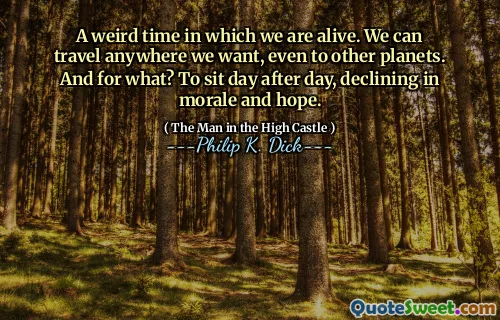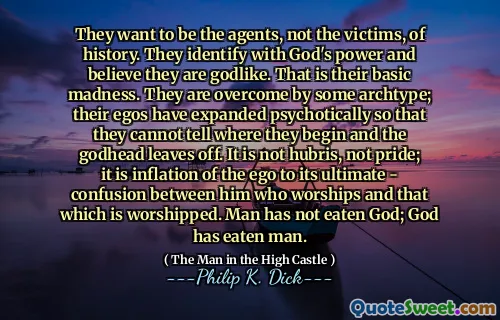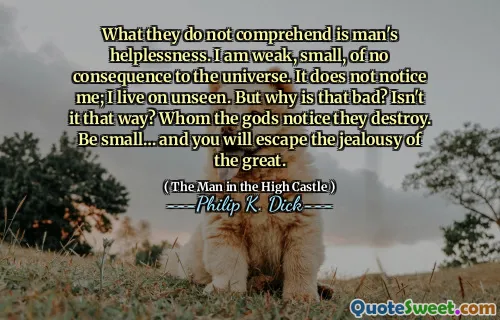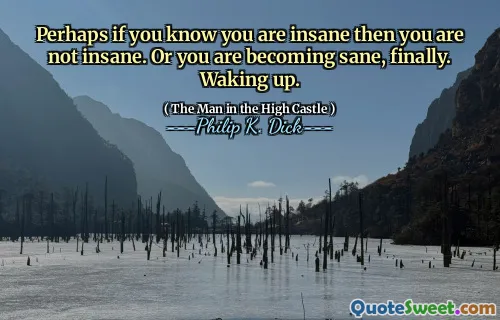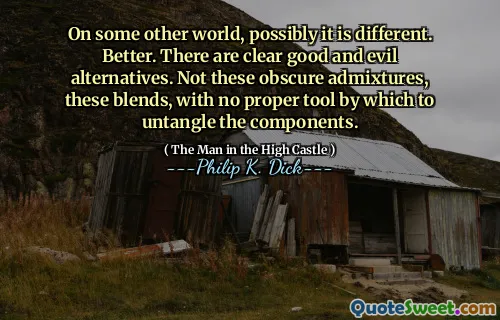
Yes, the novelist knows humanity, how worthless they are, ruled by their testicles, swayed by cowardice, selling out every cause because of their greed-all he's got to do is thump on the drum, and there's his response. And he laughing, of course, behind his hand at the effect he gets.
In Philip K. Dick's "The Man in the High Castle," the novelist presents a critical view of humanity. He suggests that people are often driven by baser instincts and fears, compromising their values out of greed. This observation underscores a sense of disillusionment with human nature, portraying individuals as easily manipulated and lacking in true moral conviction.
The author conveys that a novelist can evoke reactions from readers simply by highlighting the darker aspects of society. This ability to provoke thought and laughter simultaneously indicates a sardonic awareness of the absurdity of human behavior. Dick's perspective reveals a complex interplay between art and reality, suggesting that while people may seem to sell out their ideals, a deeper understanding of this tendency can lead to both critique and amusement.
